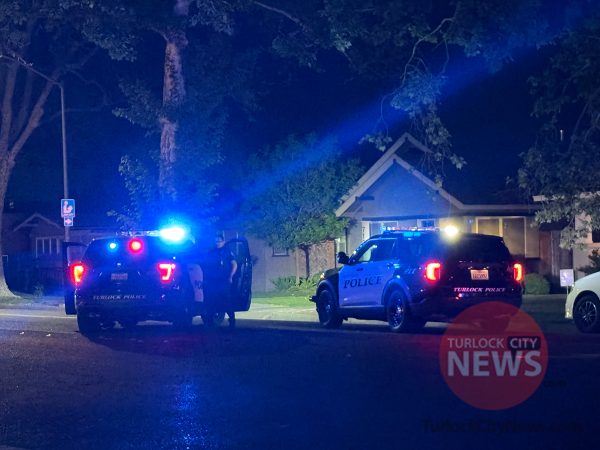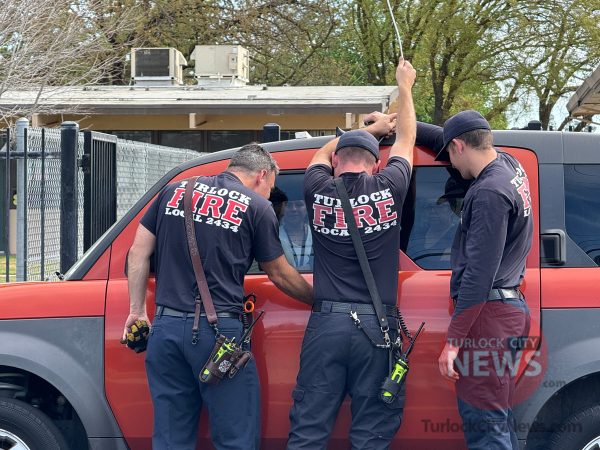The Turlock City Council approved entering into a memorandum of understanding (MOU) with the cities of Modesto, Ceres, and Turlock, along with Stanislaus County and the Del Puerto Water District, for the North Valley Regional Recycled Water Project collaborative partnership but not without expressing concerns over protecting their commodity.
On January 12, 2010, the Modesto City Council approved a resolution to move forward with a Regional Recycled Water Delivery System Feasibility Study in partnership with the Del Puerto Water District (DPWD).
The proposed project expanded to include the City of Turlock, City of Ceres, and Stanislaus County, as partners and is now truly a regional project.
The name is now referred to as the North Valley Regional Recycled Water Project and has gathered legislative interest and support to have it considered for federal funding, especially since it is such a regional project.
There are several requirements that are essential for obtaining federal funding for construction. Two key requirements are: 1) the feasibility study must be completed to authorize the project; and 2) the project partners need to execute a MOU to designate a lead agency for receiving the funding and eventually constructing the project.
The Bureau of Reclamation funding criteria for recycled water includes a section that rates recycled water projects basted on the project proponent’s formation of a “collaborative partnership” with other entities and the project’s implementation of a regional planning effort.
The MOU the Turlock City Council approved to be part of establishes a collaborative partnership between the participating agencies; provides for coordinating efforts through a committee structure with representation from each participating agency; and designates an administrative agency (in this case the City of Modesto) to enter into contracts, receive funds, and perform administrative functions of behalf of the participating agencies.
There was no immediate cost to enter into the MOU because Modesto and DPWD are paying for the feasibility study upfront in hopes of being reimbursed by federal funds by the Bureau. Modesto is funding $100,000 and DPWD is funding $25,000. If the Bureau does not cover the cost of the feasibility study, the City of Turlock will have to pay for their share of the cost.
Modesto Councilman Brad Hawn spoke to the project stating how great the project was for all involved parties and that the urgency to move forward was to get federal funding.
Hawn expressed more than obtaining federal funding, that he really likes the project because it’s one of the first times we get to solve our own problem.
Turlock Councilwoman Mary Jackson agreed about the project being good but went on to say “I do want that federal money and I want as much of it as we can get.”
“It’s tainted but we’ll take it,” said Turlock Vice Mayor Kurt Spycher.
The most highlighted issue of concern stood out as future potential governance.
Vice Mayor Spycher felt that each entity having the same amount of votes is not appropriate since every entity is not bringing the same amount to the table.
Vice Mayor Spycher made clear that Turlock is bringing approximately 13 million gallons of water per day while Modesto is bringing about 2.75 million gallons of water per day. DPWD is not providing any water but is being proposed to be an equal partner.
Modesto Councilman Brad Hawn didn’t really know how to address Spycher’s concern but to express his views that every entity needs to have the same amount of control otherwise smaller entities such as Hughson or Ceres would not participate.
Turlock Councilman Howze warned how this recycled water project collaborative could work like StanCOG as a regional agency and that a lot more money for transportation gets sent to north county corridors while Turlock gets nothing.
“We’re bringing a large chunk of water into this whole project,” said Councilman Howze. “Water is going to be most valuable commodity in this valley; it’s going to be more valuable than gasoline someday.”
“I think that we have to have a weighted mechanism by which we have some control over where our water is going and who it is going to, without sitting back and ultimately watching our water disappear out of our control because smaller cities will ban together and have more vote.”
“I did want to make you aware (staff of Modesto) of some of Turlock’s concerns as we go forward,” said Turlock Vice Mayor Spycher.
“The infrastructure and the cost and the allocation of cost is easy, it’s always about governance,” said Modesto Councilman Hawn. “I’m sure we’re going to have some real hair-pulling sessions to figure out the best way to do it.”






